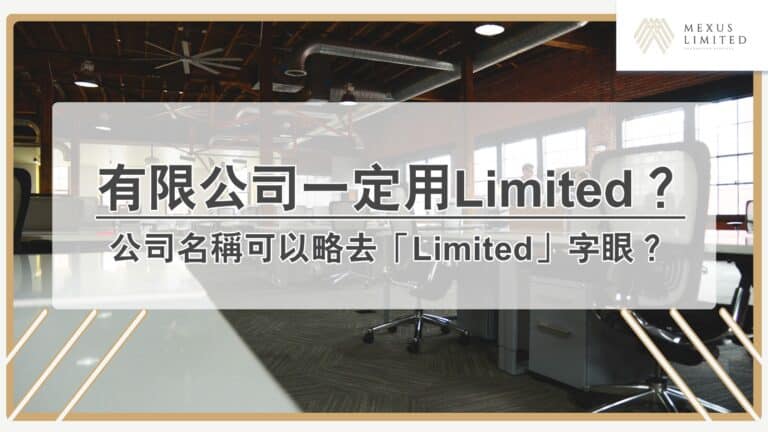Representative of a limited company? Do you understand directors, shareholders, Significant controllers, and designated representatives in one article?

No delegation of powers (unless duly authorized) and a duty to exercise independent judgment
Who is the representative of the limited company? In addition to the shareholders and directors that must be present when applying for a limited company, are there important controllers and designated representatives? Who can they serve, and what are their substantive roles? This article will introduce you one by one.
Shareholder
When applying for a limited company, the “Company Ordinance” stipulates that there must be at least one shareholder in the company structure, and this shareholder will act as the owner and investor of the limited company to provide capital, technology, or resources in exchange for company shares.
As a shareholder of a Hong Kong company, there is no national borrowing requirement and can serve as a director or secretary at the same time. Generally, the founder of the company will act as the main shareholder of the company to hold sufficient ownership.
For the establishment of a limited company, the proportion of each shareholder’s shares, the number of issued shares and the amount should be determined first. Shareholders usually have the following rights: to receive dividends, to change the registered share capital, to amend the company’s articles of association, to change the company name, to obtain notices and to attend the company’s annual/special general meeting, appoint or dismiss directors.
Director
When applying for a limited company, directors are also indispensable. Similarly, a limited company must have at least one director. If the company has only one director, the director cannot also serve as the company secretary of the company. The directors of a limited company are generally elected by the general meeting of shareholders, and can be voted by the shareholders, and serve as the decision makers of the company’s affairs and the board of directors.
A director also serves as a statutory position of the company and is the senior management of the company. They are required to comply with all the provisions of the Companies Ordinance and are responsible for the company’s daily operations and strategies.
According to the guidelines of the Companies Registry, directors are obliged to maintain the interests of the company and maintain personal conduct:
• Act in good faith in the overall interests of the company
• Use power for the general benefit of company members and for appropriate purposes
• Act with due care, skill and diligence
• Avoid conflicts between personal interests and company interests
• Do not engage in transactions of interest, except as required by law
• Not taking advantage of directorships
• No unauthorized use of company property or information
• Not accepting personal benefits given to the director by a third party because of the director’s position
• Comply with the company’s articles of association and resolutions
• Duty to keep proper accounting records
If a director defaults in the above matters, he will be prosecuted and fined.
significant controller
According to the Hong Kong Companies Ordinance (Cap. 622) 2018, all companies incorporated in Hong Kong (except listed companies) are required to identify and identify persons who have significant control over them and must maintain significant control A register of persons available to law enforcement officers upon request.
The so-called significant controllers generally meet the following conditions and must be recorded in the significant controllers register:
• The person holds, directly or indirectly, more than 25% of the company’s issued shares; or if the company has no share capital, the person directly or indirectly holds shares that apportion more than 25% of the company’s capital or share more than 25% of the company’s profits right.
• the person directly or indirectly holds more than 25% of the voting rights of the company;
• the person holds, directly or indirectly, the right to appoint or remove a majority of the directors of the company’s board of directors;
• the person has the right, or has in effect, to exercise or exercise significant influence or control over the company;
• the person has the right or has the power to exercise or exercise significant influence or control over the activities of a trust or firm which is not a legal person but whose trustees or members of the firm are Any 1 of the first 4 conditions.
designated representative
Also, as stipulated in the above-mentioned (Amendment) Ordinance 2018, the designated representative is responsible for maintaining the above-mentioned “Significant Controllers Register” and helping law enforcement officers in related matters.
The designated representative must be at least one person, who can be a shareholder, director, or employee of the company, but must be a natural person resident in Hong Kong; it can also be an accounting professional, a legal professional or a trust or company service licensee.
The above information is for reference only. If you have any questions about tax declaration and accounting, we welcome your inquiries.



